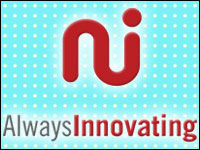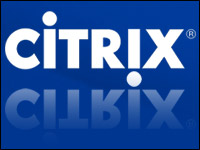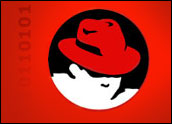
Yahoo has become Oracle’s first big Linux client, Larry Ellison, chief executive officer of Oracle, announced this week during a conference call with analysts on the company’s third-quarter financial results.
Though his company is still in its early days with its Linux support offering, Ellison said Oracle was off to a strong start. However, his comments have kicked off a controversy when, according to a Thomson Financial transcript, the Oracle head said that the his company had replaced Red Hat at Yahoo.
“We’re off to a very solid start. Our Linux support service is up and running well,” Ellison stated during the conference call. “Dell, HP and CDW are on board to resell Oracle Enterprise Linux. We’ve already signed a number of support contracts, some for over half a million dollars. And Oracle has displaced Red Hat at Yahoo and numerous other customer sites as their Linux support supplier.”
In response to Ellison’s comments, both Yahoo and Red Hat have adamantly denied that the leading Linux operator has been displaced.
“With more than 500 million consumers using Yahoo-branded products and services, we must scale our global infrastructure beyond most traditional technology environments,” said Laurie Mann, vice president of engineering at Yahoo. “To accommodate this, we will continue to evaluate and use the most appropriate vendors depending on our needs and their expertise. Our current infrastructure leverages both Red Hat and Oracle products.”
War of Attrition
Ellison’s remarks seem to be another salvo in Oracle’s effort to take a chunk out of Red Hat’s lead in the enterprise Linux market. Oracle is a long-time supporter of the open source movement and in 1999 joined with IBM, Compaq and Novell to invest in Red Hat. Things between the two companies seemed to go sour in 2006 after Red Hat purchased open source software maker JBoss. This put Red Hat in direct competition with Oracle.
The first clash came last October with the announcement that Oracle would begin offering its own version of the enterprise Linux operating system and also provide support for Red Hat’s open source enterprise Linux operating system at a 50 percent discount.
Investors responded by fleeing in the face of Oracle’s aggressive move on its Linux competitor, causing Red Hat’s stock to drop nearly 30 percent.
In order to create its Unbreakable Linux enterprise operating system, Oracle wrote code highly similar to Red Hat’s, with the exception of some Red Hat trademarks.
Shock and Awe
Ellison’s comments Tuesday were just more of the same, Laura Didio, a Yankee Group research fellow, told LinuxInsider. The Oracle chief had done much the same thing last April when he announced his company would develop its own open source operating system, she noted.
“He is basically all about drumming up controversy and talking trash to knock his rivals off their game,” she said. “If we go back to what he did almost a year ago in April — without telling anyone he basically gave an interview and said he was thinking that Oracle would build its own Linux distribution.”
“We’re missing an operating system,” Ellison said at the time. “You could argue that it makes a lot of sense for us to look at distributing and supporting Linux.”
Financial Computation
Red Hat reportedly has no plans to alter its pricing and observes that Oracle’s entry into the space has had no effect on its business.
However, when it comes to putting a large company such as Oracle, IBM, Dell or Microsoft into play in any market, they must be considered threats because due to their ability to bring to the table great economies.
“They’re bringing a big war chest, a recognized, well-respected global brand name and lots of fire power in the marketing [arena],” Didio explained. “That doesn’t mean that all their dreams will come true, but they will always be a threat.”
Yahoo gains from using both Linux products because it shows that they are agnostic in these wars, she continued. It helps their customers because the Internet company can leverage both products for their users benefit.
Oracle, according to Didio, is making a purely pragmatic financial decision and attempting to go after a segment of market that has yet to reach full maturity. She predicted that Linux will have some 30 to 35 percent share or more of the market, and could eventually bring in tens of billions of dollars.
“Larry Ellison is a tough competitor,” she said. “Red Hat was running away with the race and Oracle said, ‘Hey, I want me some of that Linux revenue.'”



















































